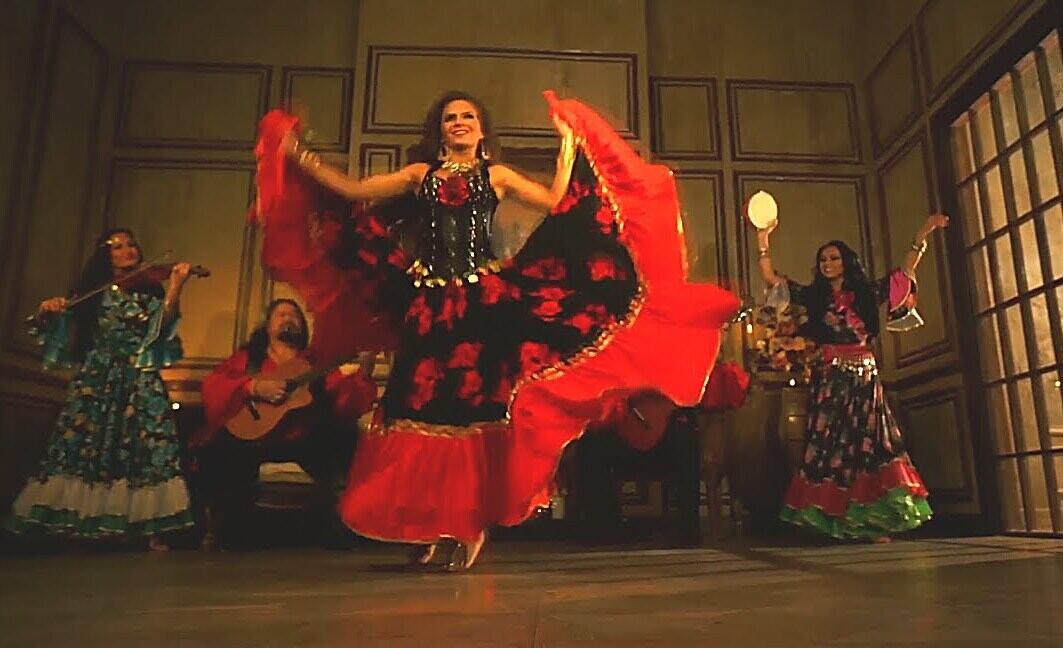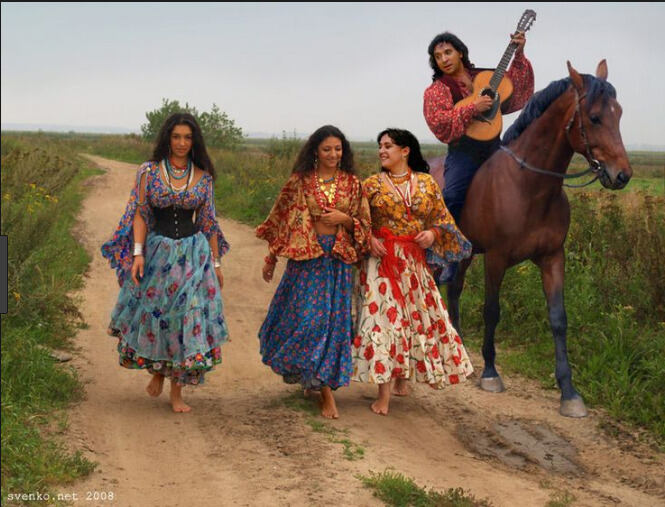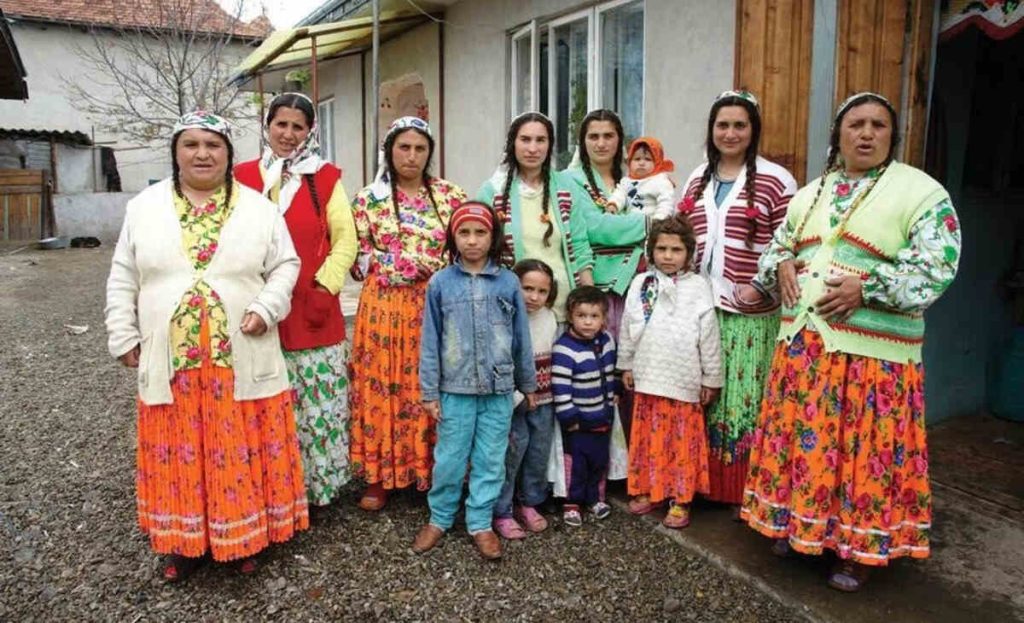When you think about the Romani people, or as they’re often called, Gypsies, what comes to mind? Colorful clothes, lively music, maybe fortune-telling? While those are part of the story, Romani culture is much deeper and richer than the stereotypes suggest.
Their traditions and superstitions are rooted in history, spirituality, and deep family connections, which form an important part of their identity.
This article covers everything you need to know about the Gypsies’ practices and beliefs, offering a detailed look at their unique traditions and superstitions while addressing common questions about this unique way of life.
Where It All Began
The Romani people trace their origins back to India over a thousand years ago. Over time, their nomadic lifestyle took them across Europe and beyond, shaping their vibrant culture. Today, their traditions still hold strong, blending the old with the new in fascinating ways.
Key Gypsy Traditions
Before we talk about their superstitions, let’s start with some of the traditions that are central to the Romani way of life.
1. The Importance of Family and Community
Family is the cornerstone of Gypsy life. Romani communities, or “clans,” are tight-knit, with extended family members often living close to one another. Family loyalty is highly valued, and children are raised with strong familial bonds. Romani families often live communally, supporting each other both emotionally and financially.
- Marriage and Courtship: Romani marriages are traditionally arranged by families, often at a young age. Courtship rituals vary between Romani groups, but respect for family values and maintaining cultural identity are critical. A Gypsy wedding is a grand affair, filled with music, dancing, and feasting. The celebration reflects the importance of family unity and the merging of two clans.
2. Music and Dance

Music and dance are essential aspects of Romani culture, serving not just as entertainment but as a means of preserving history and expressing identity. The Romani people are often credited with influencing the musical traditions of countries where they have settled. Flamenco in Spain, for example, has strong Romani roots. Music is also present in their spiritual practices, and Romani musicians, known for their improvisational skills, often perform at cultural and family gatherings.
3. Storytelling and Oral Tradition
Storytelling is a central tradition in Gypsy culture, with tales of ancestors, historical events, and moral lessons passed down orally from generation to generation. This oral tradition is crucial in preserving Romani heritage, especially given their historically marginalized status and nomadic lifestyle, which made written records less common.
4. Romani Cuisine
Gypsy cuisine is shaped by their nomadic way of life, often involving simple, hearty ingredients that are easy to carry and prepare. Common foods include stews, grilled meats, and flatbreads. Cooking is often done outdoors, and meals are a communal activity, shared among family and friends. The act of sharing food is seen as a way to strengthen bonds within the community.
5. Purity Laws (Marime)
Purity and cleanliness hold significant importance in Romani culture, with strict rules known as Marime that govern both physical and spiritual cleanliness. These rules cover various aspects of life, from personal hygiene to food preparation. Breaking these purity laws can result in someone being declared “unclean” or “polluted,” which may lead to social isolation within the community.
- Examples of Marime:
- Separate washing of dishes and clothes (never mixing the two).
- Pregnant women being considered temporarily “impure” and thus subject to certain restrictions.
- Specific rituals for washing and dressing to maintain spiritual purity.
You Might Also Like: Why Travellers Do Not Go to School in America
Gypsy Superstitions
Superstitions are a significant part of Gypsy life, influencing decisions and behaviors. These beliefs often revolve around good luck, bad omens, and the spirit world. Here are some of the most commonly known Gypsy superstitions:
1. Good Luck Charms
Gypsies believe in the power of charms and amulets to bring good fortune and ward off evil. Some of the most popular good luck symbols include:
- Horseshoes: Hanging a horseshoe above the door is believed to bring good luck and protect the home from negative energies.
- Silver Coins: Carrying or wearing silver is thought to attract wealth and ward off evil spirits.
- Clover: Like many cultures, the four-leaf clover is a symbol of good luck and prosperity.
2. The Evil Eye

The “evil eye” is a common belief among Romani people, as it is in many cultures. It is the idea that someone can bring harm or misfortune to another person simply by casting a malevolent glare. To protect against the evil eye, Gypsies may use protective charms, such as blue beads or talismans.
3. Fortune-Telling and Divination
Fortune-telling is perhaps the most well-known Romani tradition, with Romani fortune-tellers (often referred to as “seers”) practicing palmistry, tarot card reading, and crystal ball gazing. Many Romani people believe in the power of foretelling future events, and these practices are viewed as a way to gain insight into personal destiny, health, and relationships.
4. Death and the Afterlife
Romani beliefs around death are steeped in superstition. Many believe that the dead can return as spirits, either to protect the family or to bring harm if they were wronged in life. Romani people often have elaborate funeral rituals to ensure that the deceased’s spirit passes peacefully into the afterlife.
- Waking the Dead: A traditional wake is held to honor the deceased and to ensure their spirit does not linger among the living. During this time, Romani families will light candles, play music, and hold vigils to guide the spirit on its journey.
- Burning Belongings: In some Romani communities, the personal belongings of the deceased are burned to prevent their spirit from attaching to objects left behind.
5. Omens
Gypsies are highly observant of signs and omens in everyday life, believing that certain events or natural occurrences can predict future outcomes. Common omens include:
- Birds: A bird flying into a home is often seen as a bad omen, potentially indicating death or misfortune. On the other hand, seeing a robin is thought to bring good luck.
- Spiders: Finding a spider is considered a good sign, symbolizing wealth and prosperity.
- Breaking Glass: Shattering glass, especially during a celebration, is believed to bring bad luck.
More Gypsy Superstitions…
1. Sweeping Luck Away
It’s believed that sweeping the floor at night, especially near the front door, could sweep away good fortune from the home. Similarly, sweeping dirt out through the door instead of into a dustpan may invite bad luck.
2. Shoes on the Table

Placing shoes on a table is seen as highly unlucky. This act is believed to bring misfortune or even death, as it symbolically mimics placing the deceased’s shoes during mourning.
3. Itchy Hands
An itchy palm has strong meanings in Romani superstition:
- Right palm itching: You’re about to receive money.
- Left palm itching: You might lose money soon.
4. Crossroads
Crossroads hold a mystical significance. They are thought to be places where the spiritual world is especially active. Some Romani people believe leaving offerings at crossroads can bring good luck or appease spirits.
5. Dreams as Omens
Dreams are considered powerful predictors of future events. For example:
- Dreaming of water could signify a cleansing or emotional shift.
- Dreaming of teeth falling out is a bad omen, often linked to illness or loss.
6. Whistling Indoors
Whistling inside the house is believed to summon bad spirits or bring financial misfortune. It’s avoided in many Romani households.
7. Crows and Ravens
These birds are often seen as omens of death or misfortune. However, seeing a single crow may signify something negative, while seeing two together might represent good luck or a partnership.
8. Spilled Salt
Spilling salt is considered unlucky, but the misfortune can be countered by throwing a pinch of the spilled salt over your left shoulder. This gesture is believed to ward off evil spirits lurking nearby.
9. Washing Clothes on a Friday
It’s said that washing clothes on a Friday invites bad luck. This belief ties into the spiritual significance of certain days being more sacred or connected to rest.
10. Dogs Howling
A dog howling without apparent reason is thought to signal the presence of spirits or a warning of impending death.
11. New Moon Rituals
The sighting of a new moon has special meaning. Some believe that turning a coin in your pocket when you see the first crescent moon brings wealth or good fortune.
12. Knives as Gifts
Giving someone a knife as a gift is seen as unlucky, as it might “cut” the relationship between the giver and receiver. To avoid this, the receiver should offer a small coin in return to symbolically “buy” the knife.
13. Touching Wood
Much like the familiar “knock on wood” superstition, touching wood is thought to ward off bad luck or prevent a jinx after saying something hopeful or positive.
14. Rainbows
Seeing a rainbow is considered a sign of good fortune and blessings. It symbolizes hope and the promise of better times.
15. Butterflies
Butterflies are viewed as spiritual messengers. A butterfly entering the home might mean a visitor or positive news is on the way.
Questions People Ask

1. Who are the Gypsies?
The term “Gypsy” is often used to refer to the Romani people, an ethnic group that originated in Northern India and migrated to Europe and other parts of the world over centuries. Today, Romani communities can be found across the globe, each with their own customs and dialects. However, the term “Gypsy” can sometimes be seen as derogatory, and many prefer to be called “Romani” or “Roma.”
2. Why do Gypsies believe in so many superstitions?
Superstitions are deeply rooted in Romani culture due to their historical experiences of marginalization and their nomadic way of life. These beliefs were often a way to explain the world around them and to provide a sense of control over uncertain circumstances. Today, superstitions remain an important part of Romani identity and cultural heritage.
3. Do all Romani people practice fortune-telling?
Not all Romani people engage in fortune-telling. While it is a well-known tradition associated with some Romani groups, many Romani individuals do not practice it or believe in its accuracy. Fortune-telling is more of a cultural symbol than a universal practice among all Roma.
4. Are Gypsy traditions still practiced today?
Yes, many Romani families continue to uphold their traditions, though practices may vary between groups and regions. Some Romani people have integrated into mainstream society while maintaining aspects of their cultural heritage, while others continue to live a more traditional, nomadic lifestyle.
5. Is it offensive to call someone a Gypsy?
The term “Gypsy” can carry negative connotations due to its historical use in discriminatory contexts. While some Romani people may use the term to describe themselves, it’s generally considered more respectful to use “Romani” or “Roma” when referring to the ethnic group.
In Closing
Romani traditions and superstitions are like pieces of a puzzle that tell the story of a resilient and vibrant culture. From their deep love of family to their beliefs about luck and the spirit world, these customs remind us how people find meaning and connection in the world around them. Exploring these traditions isn’t just interesting—it’s a chance to see the world through a different lens and appreciate the beauty of diversity.
